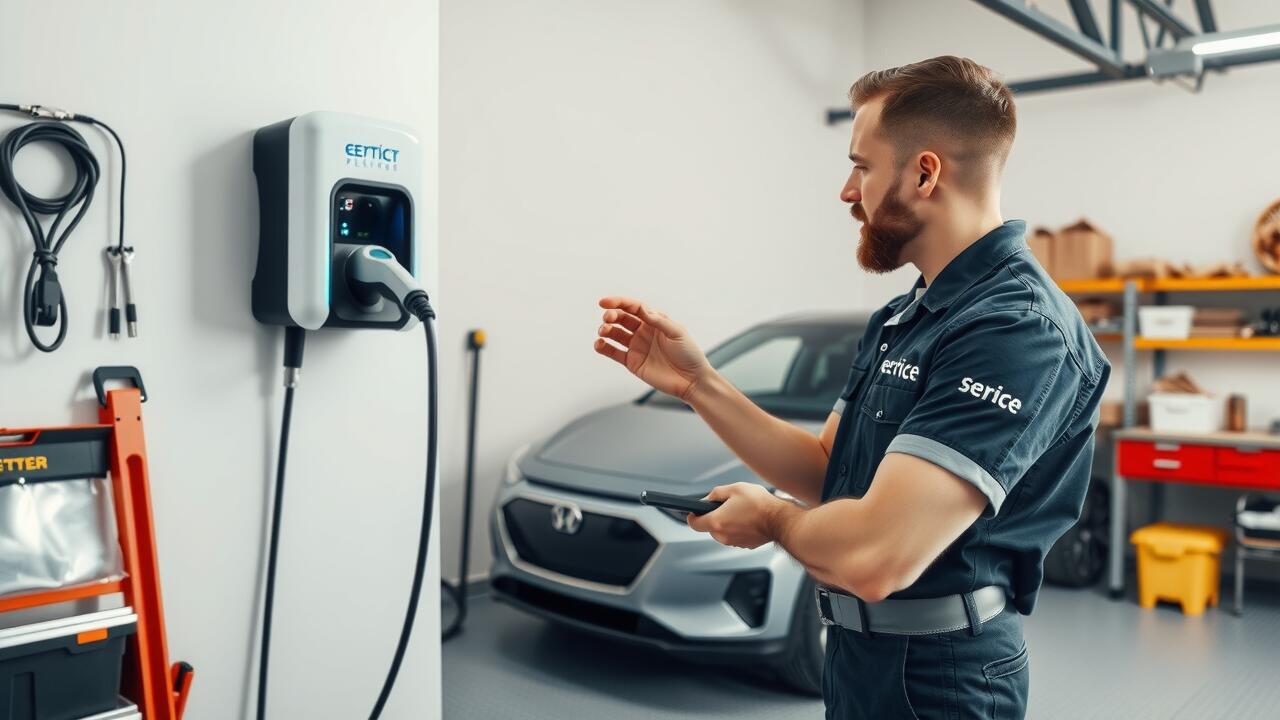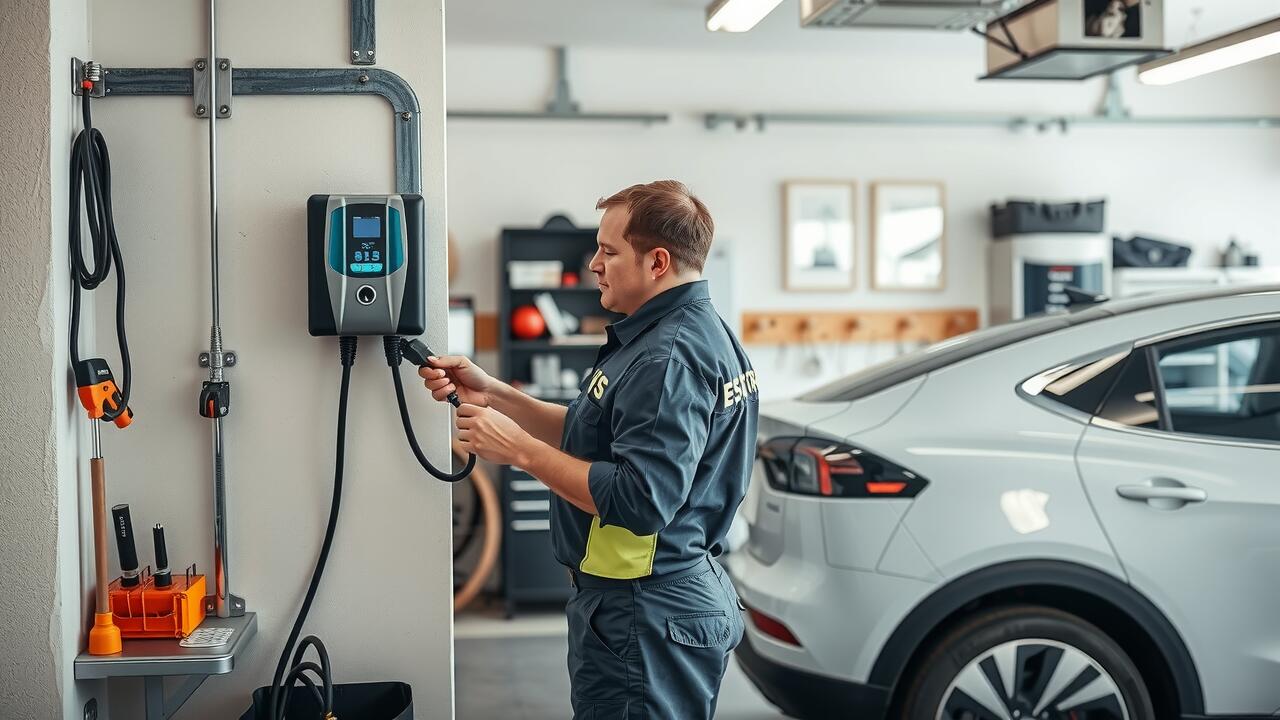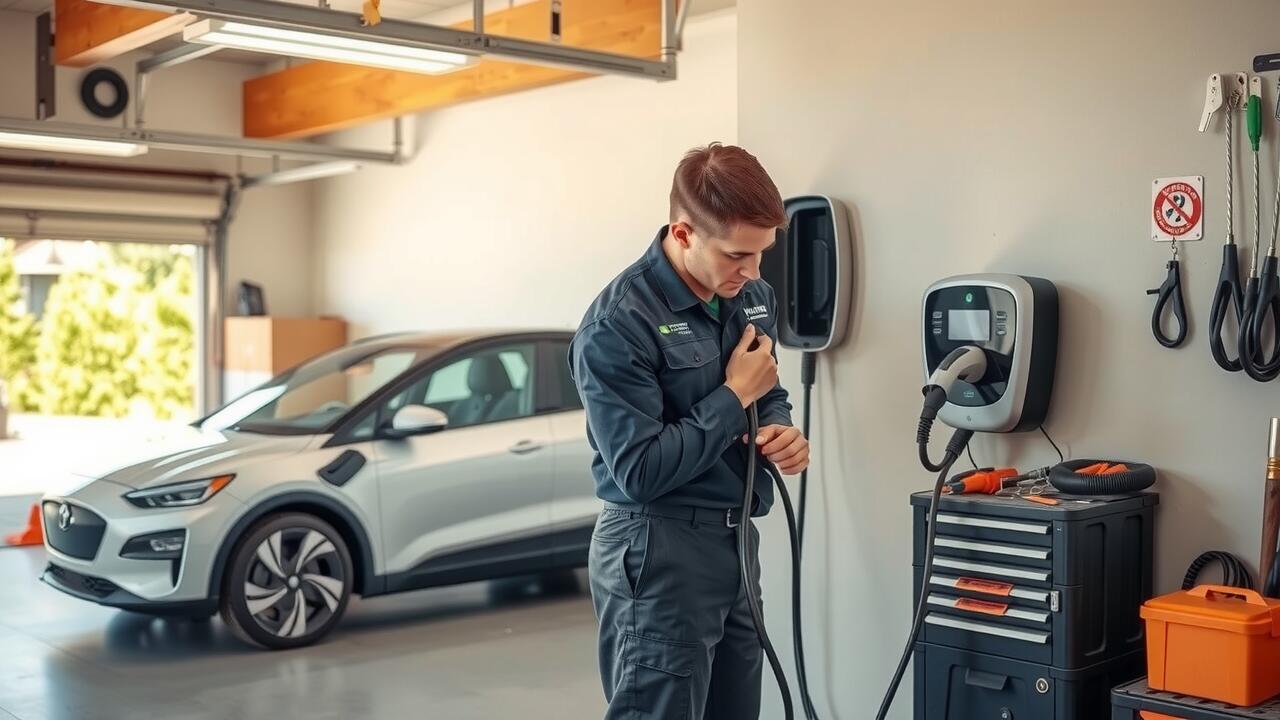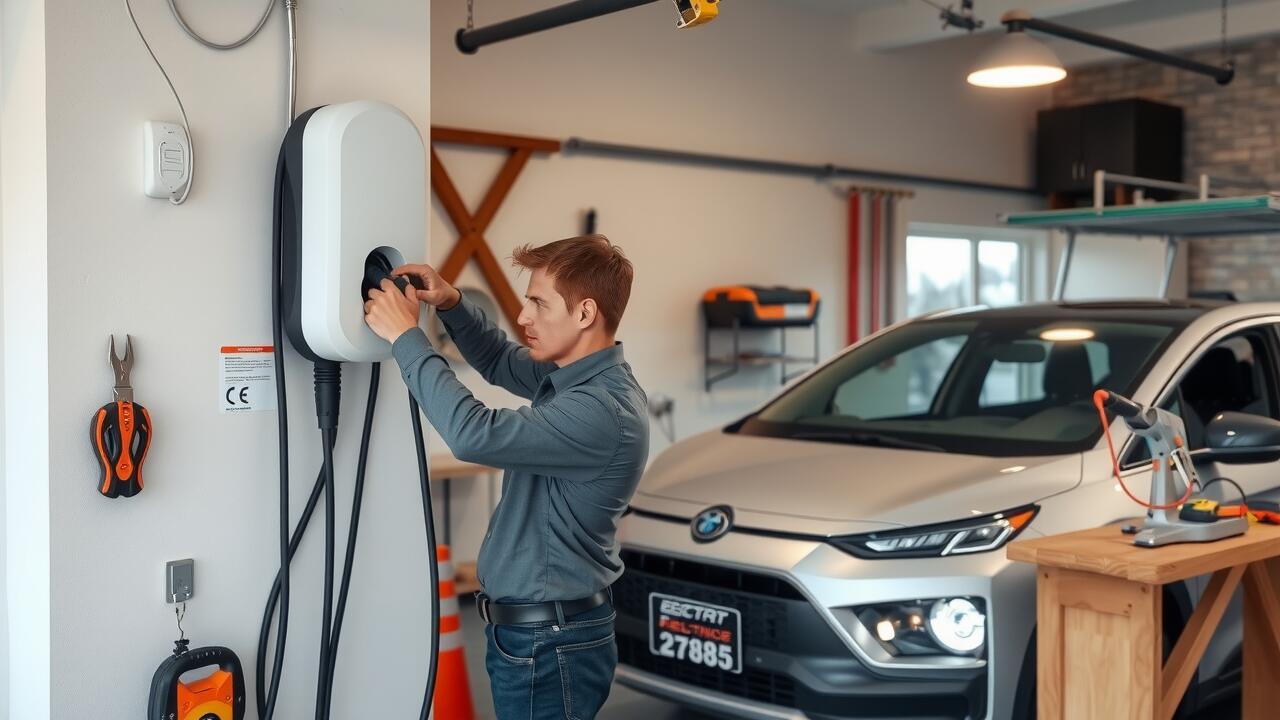
Table Of Contents
Impact on Home Value
Installing an EV charger at home can significantly influence property value. As electric vehicles gain popularity, potential homebuyers are increasingly seeking properties equipped with charging stations. This desire stems from the convenience an EV charger provides, catering to the evolving automotive landscape and reflecting a forward-thinking approach to energy use.
Additionally, EV charger installation in residential areas may enhance marketability, making a property more appealing to environmentally conscious buyers. Homes with such amenities often stand out in listings, potentially leading to quicker sales and even higher offers. As the trend of electric vehicles continues to rise, the presence of a home charging station is likely to become a sought-after feature in the competitive real estate market.
How EV Chargers Affect Real Estate
Homebuyers increasingly consider sustainability features when making purchasing decisions. The presence of an EV charger can enhance a property's appeal, making it more attractive to environmentally conscious buyers. In regions where electric vehicle adoption is on the rise, properties with dedicated EV charger installation in their garages or driveways may draw more interest and potentially command higher resale values. This trend reflects a growing market shift as consumers prioritise homes that accommodate electric vehicles.
Additionally, real estate professionals note that EV charger installation in residential properties is becoming a selling point, particularly as more people transition to electric vehicles. Sellers can leverage this feature in listings to differentiate their homes from similar properties without charging capabilities. As the demand for electric mobility continues to grow, having an EV charger could be seen not just as a convenience but as a valuable asset in the competitive housing market.
Environmental Considerations
The environmental considerations surrounding electric vehicles (EVs) highlight the significance of EV charger installation in promoting sustainability. By making the switch to electric, vehicle owners contribute to a reduction in greenhouse gas emissions. The presence of home chargers encourages more individuals to opt for EVs, further enhancing their positive impact on air quality.
In New Zealand, where a significant portion of electricity is generated from renewable sources, the benefits of EV charger installation in residential areas become even more pronounced. Homeowners are not only able to charge their vehicles conveniently but also contribute to a more sustainable energy landscape. This shift provides an opportunity to decrease reliance on fossil fuels and supports initiatives aimed at combating climate change.
Reducing Your Carbon Footprint
The transition to electric vehicles (EVs) represents a significant step towards a cleaner environment. By opting for an EV charger installation in your home, you not only reduce dependence on fossil fuels but also contribute to decreasing greenhouse gas emissions. The use of renewable energy sources, such as solar power, to charge your electric vehicle further enhances its environmental benefits. Families and individuals are increasingly realising the importance of making eco-friendly choices, and having an EV charger at home is a practical way to support sustainable living.
Moreover, an EV charger installation in your home enables the use of electric vehicles for daily commutes, which is a crucial factor in minimising urban pollution. This shift helps to improve air quality in local communities and reduces noise pollution from traditional combustion engines. Homeowners are finding that integrating an EV charger into their property creates not only a more environmentally responsible lifestyle but also fosters a sense of community engagement in the push towards a greener future.
Local Incentives and Rebates
Local councils and the New Zealand Government have started recognising the increasing popularity of electric vehicles and the corresponding need for home charging solutions. This has led to the introduction of various local incentives and rebates aimed at encouraging EV charger installation in residential properties. Many regions offer financial help in the form of grants or subsidies, helping to offset the initial outlay of purchasing and installing a charger.
In addition to local initiatives, some electricity providers also present their own incentives for customers who install an EV charger at home. These could include discounted electricity rates during off-peak hours or even cashback offers on installation costs. Such financial benefits significantly enhance the feasibility of EV charger installation in New Zealand, making it an attractive option for homeowners considering the switch to electric vehicles.
Financial Benefits Available in New Zealand
In New Zealand, financial support for EV charger installation in residential areas is becoming increasingly common. Various local councils and government initiatives provide rebates that can help offset the initial costs. These incentives vary by region but often include grants or subsidies for homeowners who invest in electric vehicle charging infrastructure.
Additionally, many energy providers in New Zealand have introduced special rates for EV owners. These rates can significantly reduce electricity costs associated with charging an electric vehicle at home. By taking advantage of these financial benefits, homeowners can enhance the affordability of EV charger installation in their properties while contributing to a more sustainable future.
FAQS
What are the benefits of installing an EV charger at home?
Installing an EV charger at home offers convenience, potential cost savings on fuel, and the ability to charge your vehicle overnight. It can also enhance your home's value and appeal to environmentally conscious buyers.
How does having an EV charger affect the resale value of a home?
An EV charger can positively impact your home’s resale value, as more buyers are looking for homes equipped with charging stations, especially as electric vehicle adoption grows.
Are there any environmental benefits to installing an EV charger at home?
Yes, installing an EV charger can help reduce your carbon footprint by encouraging the use of electric vehicles, which produce lower emissions compared to traditional petrol or diesel vehicles.
What types of local incentives and rebates are available for installing EV chargers in New Zealand?
In New Zealand, various local councils and government initiatives may offer financial incentives, rebates, or grants for installing EV chargers, aimed at promoting the use of electric vehicles.
Is it expensive to install an EV charger at home?
The cost of installing an EV charger can vary based on the type of charger, installation complexity, and any necessary electrical upgrades. However, many homeowners find the long-term savings on fuel and potential incentives can offset these initial costs.



